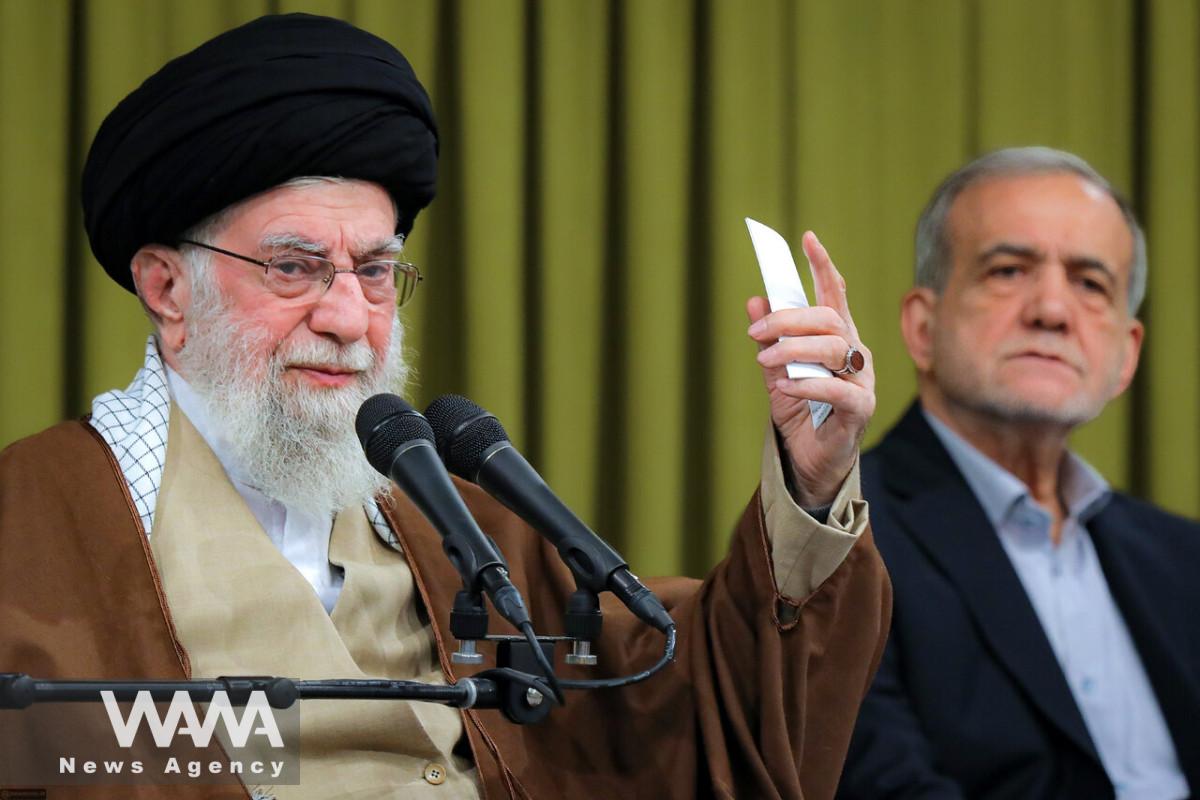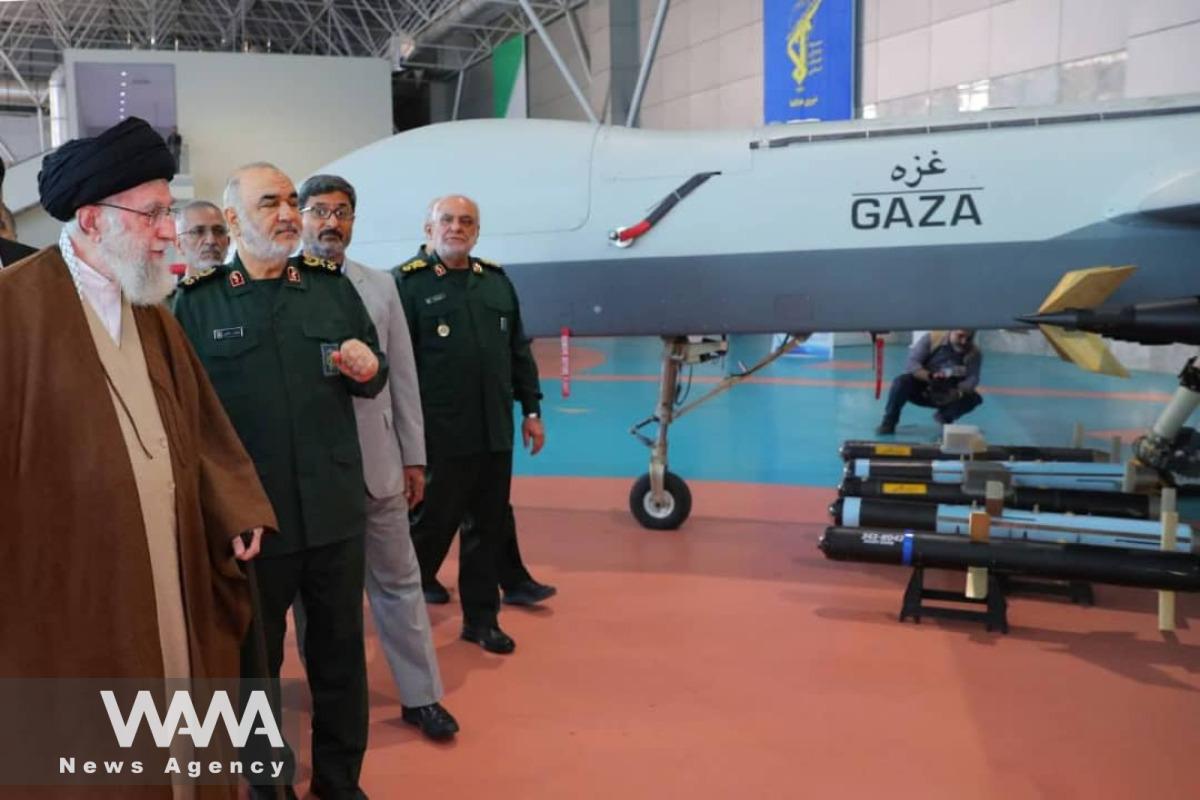Negotiation, but at What Cost?
WANA (Feb 08) – Politics is not a field of predetermined certainties. The players in this arena may encounter situations that upend previous calculations at any moment. However, among all the possibilities, one principle remains unchanged for Iran: negotiations must not happen at any cost.
Last week, when Iran’s Foreign Minister spoke with Sky News, his words carried a clear message: Iran is open to dialogue, but not under any circumstances. He spoke of America’s untrustworthiness, emphasizing that Washington must first prove its sincerity. Yet, this was not merely a diplomatic remark—it was a reflection of a broader policy that seemed to be in full alignment with the leadership of the Islamic Republic.

Iran’s FM Warns of Decisive Response to Nuclear Site Attacks
WANA (Jan 28) – Iranian Foreign Minister Seyed Abbas Araghchi has issued a warning regarding potential attacks on Iran’s nuclear facilities. In an exclusive interview with Sky News, he stated, “We have explicitly said that any attack on our nuclear sites will be met with an immediate and decisive response. However, I don’t believe anyone […]
At the same time, analysts interpreted Araghchi’s remarks as a tacit acknowledgment of strategic miscalculations by previous administrations. Having been a key negotiator in the JCPOA talks, he now spoke of past mistakes. However, an important point must not be overlooked: he did not outright reject negotiations. Instead, he stressed that Iran does not shy away from talks but will only engage on equal footing.
A day after that interview, Iran’s Supreme Leader delivered a speech that added further complexity to the ongoing analysis. Some perceived his words as a definitive rejection of negotiations, while others saw in his remarks a nuanced stance—one that, while urging caution, did not completely rule out conditional engagement. But yesterday, his position became clearer than ever: negotiations with the U.S. are futile. This left no room for doubt.

Iran’s Supreme Leader and Iran’s President Masoud Pezeshkian / WANA News Agency
Politics is like chess. No piece is ever permanently victorious or defeated; rather, timing and strategy determine the outcome. Negotiation follows the same principle. It is neither inherently good nor bad—it depends on the circumstances, objectives, and counterpart involved. Iran does not fear negotiation, but negotiation at any cost is not an option. The JCPOA was an experience, and after it, Iran’s perspective on the negotiation table is no longer the same.
Tehran’s Strategy: Buy Time, Build Strength
Proponents of negotiation often argue that it is a means to alleviate economic pressure and lift sanctions. But do past experiences support this conclusion? Critics maintain that negotiations with the U.S. have never resulted in real relief; rather, their only benefit has been buying time—time that Iran has used to strengthen its military and economic capabilities to build deterrence.

Gaza Drone, A Major Step in Iran’s Military Power / WANA News Agency
Evidence suggests that Tehran was closely monitoring White House moves before Trump’s meeting with Netanyahu and the imposition of new sanctions. Perhaps there was a slim chance that Washington would send signals of a shift in approach. However, Trump’s actions reaffirmed the Iranian leader’s long-held assessment: as long as Israel’s interests are at stake, the U.S. will remain on the same trajectory.
Now, the situation has changed. Trump can no longer force Tehran into retreat with the “stick of sanctions” and the “carrot of negotiation.” He now faces two choices: either be powerful enough to confront Iran directly or wield such overwhelming economic influence that he can cut off Tehran’s revenue streams. Yet, past experiences show that neither approach has yielded the desired results for Washington.

Trump and Iran: A Shift in Strategy or Diplomatic Game?
WANA (Feb 06) – Donald Trump, whose withdrawal from the JCPOA marked the beginning of the maximum pressure policy, is now adopting a different tone regarding Iran. In a meeting with Benjamin Netanyahu, he uncharacteristically described Iran as “strong” but quickly added: “Of course, that doesn’t mean it can’t become weak again.” He also […]
In his latest statements, Iran’s Supreme Leader made it clear: “If we are threatened, we will threaten in return. If we are struck, we will respond.” This conveys a straightforward message—Tehran no longer fears the so-called “snapback mechanism” and instead relies on three key elements: its people, national unity, and resilience.
The Iranian leader introduced the concept of “committed officials and a united nation.” This phrase is more than just a slogan; it carries a direct implication: if Iran is to avoid negotiations and stand firm against the U.S., internal unity is essential. The real battle is not only on the diplomatic front but also within the country, among its people: Is Iran prepared for yet another test against external pressures?

Iran’s Leader Threatens America: “You Strike, We Strike”
WANA (Feb 07) – In the world of politics, sometimes a single statement can hit like a powerful missile—breaking through diplomatic barriers and shifting power dynamics. Today, in a meeting with Air Force commanders, Iran’s Supreme Leader responded to the latest U.S. remarks and sanctions with a stance that was not only directed at the […]













